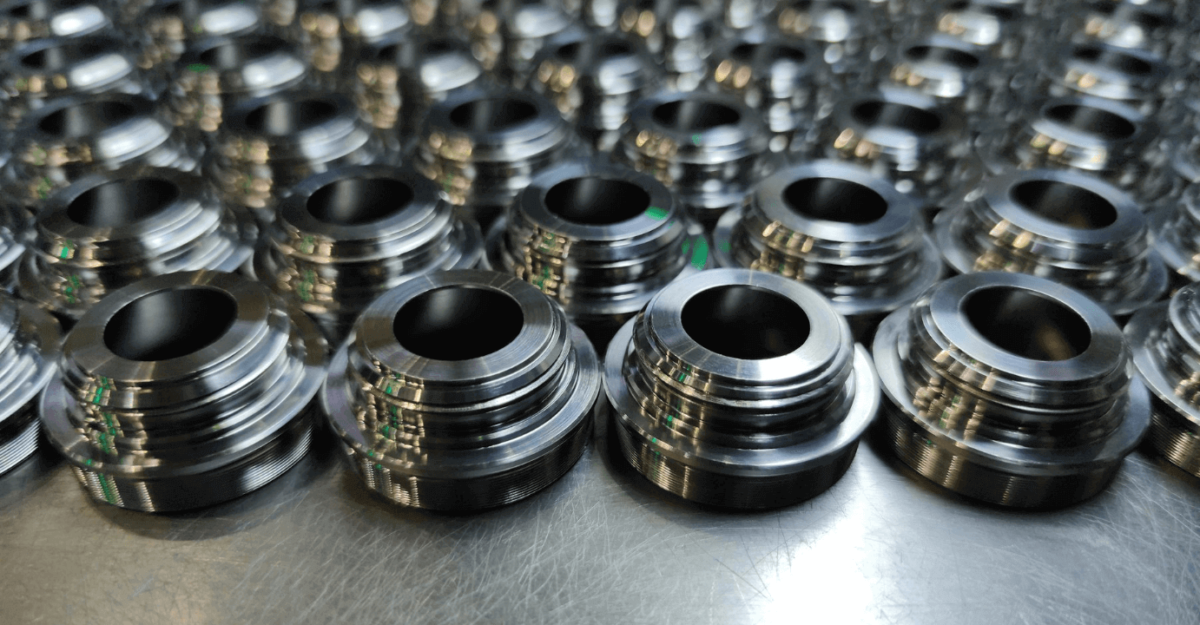Saying that fasteners helped us conquer the space would not be farfetched. In fact, Aerospace Fasteners are pivotal to the aviation industry and have revolutionized traveling.
Nowadays, we see bigger and faster air and space crafts which were only possible with modern Aerospace Fastener technology that holds the body together, even in extreme atmospheres and vacuums.
Here we have arranged a detailed guide that goes through all the aspects of Aircraft Fastener manufacturing.
Let’s go!
Aerospace Fasteners- An overview
Components like screws, rivets, bolts, nuts, etc., keep the integrity of the pressurized vessel in the atmosphere. They are an integral part of the aviation industry which means a lot of engineering and research goes into these fasteners.
Maybe you run a fastener manufacturing business, or an aircraft technician, or just an aviation enthusiast; nonetheless, we have compiled a great deal of information for you. Let’s get into it.

Types of Fasteners used in the Aerospace Industry
Fasteners are a vital element of any aircraft. Unlike most other vehicles, aircraft parts cannot be welded or glued together. Aircraft use different materials for different sections. Not all of these materials are weldable. And using glue or adhesive is not feasible for such precision work.
It’s the job of fasteners to connect these parts precisely with one another. Precise joints require precise fasteners. Types of fasteners are varied and numerous. They are based on standards like AS9100, AS9120, BS9100, etc.
The aerospace industry uses the same fasteners as other industries. But to maintain strict tolerances, they follow specific ISO standards for aerospace fasteners.
Here is the list of fastener types that are commonly used in the aerospace industry:
- Screws:
Screws are the most common and practical threaded fastener available. It has various types such as Hex Cap, Cap Head, Security Screws
- Pins
Dowel Pin are small cylindrical shafts used to arrange or join two or more engineering components together.
- Rivets
Rivet- a permanent fastener often seen on the aircraft body. It has a shaft and the head installed using a rivet gun and holds two pieces together.
- Bolts and Nuts:
Another threaded fastener with excellent grip. It comes in many shapes and sizes, such as Hex, Head, Eyebolts.
- Washers
Not precisely a fastener itself, but it aids aircraft screws and bolts in preventing vibrations and distributing the load over a larger area.
- Collars
Collars also aid bolts and screws in locking the two components effectively.
- Fastener Covers
Made from strong material and used for protecting the fasteners from external impact. Making it long-lasting and maintenance-free.
All these fasteners must adhere to specific standards. Here is a brief list of common ISO Standards for aerospace fasteners.

Specialized Aviation Fasteners
Apart from the common types of fasteners mentioned above, several specialized ones are designed specifically for aerospace use. These aviation fasteners high higher strength and less weight. Some of these are as follows:
Taper Lock
The most robust of all fasteners, Taper-Lock has a tapered shape that applies force on the hole’s wall. Different than rivets, the shank is not deformed when it is fixed.
Taper-Lock’s washer head presses itself in the tapered shape hole with extreme pressure. The shank experiences radial and vertical compression from the washer and the wall, creating a strong lock with the greatest strengths.
Hi-Tigue
Hi-Tigue has two parts. A fastener and a bead. The bead squeezes against the wall preloading the hole. The preloading prevents vibrations and cyclic loading, making it an essential fastener.
Turnlock
Easy to use, fast action, and a strong fastener-Turnlock. It is used to fasten aircraft panels, doors, hatches, etc. It has a spring, a stud, grommet, and receptacle. Usually made up
Spacecraft Fasteners Vs. Aircraft Fasteners
Aerospace fasteners come in two categories. Spacecraft and Aircraft both fly in different atmospheric conditions, which means their requirement for a strong body is different.
Spacecraft fasteners have more tensile strength than commercial grade fasteners because they have to withstand a vacuum in space. Here are some stats to get an idea of how high-performance aerospace fasteners are:
Material Used in Manufacturing Aircraft Fasteners
Selecting a suitable material is the first step in manufacturing. Material selection depends upon the application. It is essential to consider factors like strength, weight, heat/electric insulation, corrosion, and rust resistance beforehand. Following are a few commonly used materials in CNC machining,
- Steel & Steel Alloys
Probably the most versatile and practical material of all, steel. It’s robust but comes with a heavy weight.
- Aluminum
Super light and malleable, used for many fasteners. But it is less heat resistant and can melt at 250℉ (120 ℃). Aluminum and Steel are more common for load-bearing joints.
- Titanium
One of the strongest metals to exist on the planet and excellent for aerospace fasteners. Lightweight and have high tensile strength. They can withstand -212℃ (-350℉) to 426℃(800℉).
- Plastics: Nylon, HDPE, or PVC
Plastic fasteners are only helpful in aerospace applications when strength is not a concern. Plastics like Nylon are resistant to corrosion and electrical interference.
- Super Alloys
Super Alloys-combining the strength of multiple materials, they usually have higher material properties than their constituents. They can withstand extreme temperatures and large stress.
Characteristics of Aircraft Fasteners
Aerospace fasteners need to have specific characteristics to survive extreme conditions. Their features are enhanced by special designs, performance-enhancing techniques like “Heat Treatment,” advanced composites, etc.
Here are some important inherent characteristics of Aerospace fasteners:
- Corrosion and Oxidation Resistant
- Self-Locking
- Lightweight but High tensile strength
- Can resist high shear stress and cyclic fatigue

Why is CNC Machining Important for Aerospace Fasteners?
The aerospace industry requires high-performance machines. As such, they need the utmost care when manufacturing. A single mistake can compromise the integrity of the entire product. Aerospace machines like Aircraft have hundreds of thousands of parts perfectly joined together into a single device.
For example, The Boeing 747 is composed of 6 million parts. And 3 million of those parts were fasteners, which means 3 million potential points of failure.
All of these parts must maintain a strict tolerance. This precision can only be achieved using computers. CNC Machining solves this exact problem, allowing for unparalleled precision and accuracy.
Benefits of using CNC Machining for Aerospace Fasteners
CNC Machines allow for a wide range of advantages over traditional machining. CNC machining allows,
- Machining difficult materials. Titanium or steel alloys.
- Weight Reduction. By precision manufacturing of complex designs.
- High accuracy. Precision is getting the exact dimensions. Accuracy is getting the same precise results upon repetition.
- Extremely efficient manufacturing. High-speed machining in less time.
- Customized manufacturing of non-standard or purpose-specific parts.
- Rapid prototyping.
Conclusion
To conclude, aerospace fasteners are critical components, and their efficiency can be a matter of life and death in space. These components hold the pressurized vessel together and prevent any leakages. We have covered extensively the types and materials of fasteners used in the aerospace industry. Also touched is the subject of CNC Machining and its importance in manufacturing high precision fasteners for the aerospace industry.
QBH Technology offers rapid CNC manufacturing services for Aerospace Parts and Accessories. Our state-of-the-art facility is run by experienced machinists and engineers who deliver high-quality products in the shortest lead times.
Get the best service and an opportunity for custom designs RIGHT NOW!
Drop us a message, and our FAST customer service will contact you in no time.


